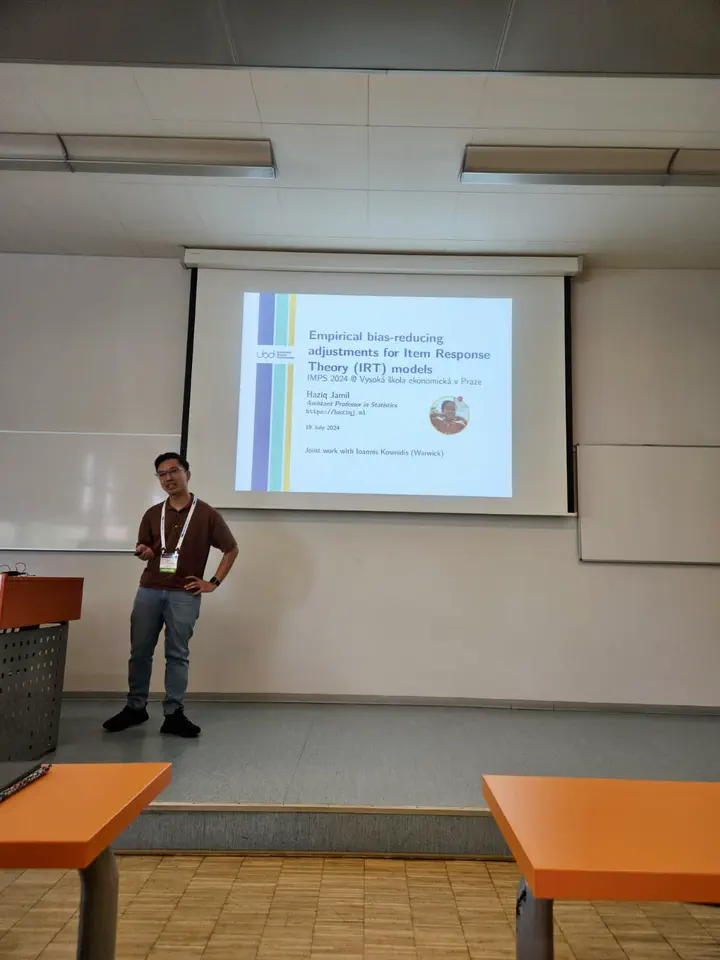Empiral bias-reducing adjustments for Item Response Theory (IRT) models

Abstract
In the field of psychometrics, the accuracy and reliability of measurement tools are paramount, particularly when employing Item Response Theory (IRT) models for assessing latent psychological traits. A persistent challenge in this domain is the non-zero bias of order $O(1/n)$ in finite sample sizes, a problem aggravated by deviations from the latent normality assumption, such as excess zeroes or skewed distributions. This presentation introduces an empirical bias adjustment method designed to mitigate this problem. The method applies adjustments derived from the empirical approximation of bias through higher-order derivatives of the estimating functions. Our simple approach offers a promising avenue for enhancing the robustness of IRT model estimations, especially in samples that deviate from idealized assumptions. The method’s theoretical advantages include markedly improved accuracy of estimator recovery, rendering it an invaluable asset for both researchers and practitioners. The innovation lies in its straightforward adjustment process, which can be implemented via implicit (i.e. solving adjusted estimating equations) or explicit methods (i.e. adjusting original estimators), thus streamlining the adoption and offering an appealing alternative to existing, more complex bias-reduction techniques. Validation of our theoretical framework through simulation studies confirms the effectiveness of our empirical bias adjustment in reducing parameter bias, thereby enabling more precise and dependable psychometric measurements.